Popular Articles
- Herdox Supplement Facts
- Itching from Herpes? Learn How to Stop it
- Herpes | 13 Herbs for HSV-2
- Herpes | Reducing Outbreaks and Symptoms
- Stop Recurring Herpes Incidences
- 11 Tips to Manage Your Herpes Outbreak
- Vaccine for Herpes
- Water and Herpes- Does Water Spread It?
- Bleach and Herpes
- Famvir
- More Articles ...
 Herpes VitaminIn This Article
Although there are no vitamins that can cure herpes, there are several vitamins and minerals that promote healthy skin and faster healing times.
Oral herpes, also called the herpes simplex- 1 virus, and genital herpes, also known as herpes simplex virus- 2, are two incurable, but treatable skin conditions. Although there are no specific vitamins for the treatment of herpes, vitamins, and minerals can support healthy skin and increase the speed at which the skin heals after infection. New York University School of Medicine assistant professor of dermatology, Doris Day, M.D., says that the health of the skin can be affected by both the inside and outside. Eating a healthy diet that includes large amounts of a variety of fruits and vegetables can provide the necessary vitamins for herpes outbreak healing. What is the herpes simplex virus?
Both forms of the herpes simplex virus cannot be cured. Once infected, the virus remains in the body forever, much like chickenpox. Herpes outbreaks occur less frequently and with less severity over time. Once infected with the herpes virus, a person will always be contagious and can spread the disease to others. What are the best sources of vitamins for herpes?WebMD.com suggests a diet that is high in antioxidants is the best source of vitamins for herpes and skin health in general. Vitamins A, C, and E are considered antioxidant vitamins and are best absorbed by eating copious amounts of fresh fruits and vegetables. Antioxidants not only correct free radical damage caused by aging and environmental toxins, but they also help protect and repair the skin from diseases such as herpes. Many nutritionists use the phrase “eating the rainbow” when describing the variety of fruits and vegetables to eat to provide the skin, and body as a whole, with enough vitamins. The medical journal Diabetes Forecast uses the concept of “tasting the rainbow” multiple times in its publications to describe healthy food choices. For herpes, the following foods may help with faster healing times and fewer outbreaks:
Vitamins for herpesCertain vitamins and minerals have been clinically proven to show support for skin health and help to reduce healing times. They are 1) Vitamin A, 2) Vitamin E, 3) zinc, 4) selenium, CoQ10, and methionine. Vitamin AA potentially groundbreaking clinical study was published in 2000 by the Department of Epidemiology at the University of Washington. This study involved women who were both HIV- positive and also had genital herpes.
Women who were not pregnant and did not use a prescription hormone form of birth control were found to be at significant risk for genital herpes if the women had a severe Vitamin A deficiency in their bloodstream. This study, while not directly linking a Vitamin A deficiency with a risk of herpes simplex virus- 2 infection, does imply that Vitamin A plays a role in supporting immune system health. The recommended daily dietary allowance (RDA) for Vitamin A in adults over the age of 14, according to the Office of Dietary Supplements at the National Institutes of Health, is 900 mcg Vitamin A for males and 700 mcg for females over the age of 14. If a person prefers to take Vitamin A in supplement form rather than through the daily diet, the RDA is 6000 IU for men and 4000 IU for women. Pregnant women require 770 mcg Vitamin A through dietary sources while breastfeeding mothers need 1300 mcg Vitamin A. Excellent food sources of Vitamin A are:
Care must be taken when consuming Vitamin A. There are toxic levels of Vitamin A, most often caused by individuals who take too many supplements. Teenagers should take no more than 2800 mcg of Vitamin A in food or 9333 IU in supplement form. Adults should not take more than 3000 mcg of Vitamin A in food or 10,000 IU as a supplement. Toxic amounts of Vitamin A can cause permanent liver damage, coma, and even death. In 2009, the medical journal Dermato-endocrinology published a study on nutrition, nutritional supplements, and skin health. The researchers specifically highlighted the role Vitamin A plays in reducing the time it takes for a skin wound to heal. This implies that Vitamin A has a special significance for people suffering from outbreaks of either oral or genital herpes.
|
| Foods Rich with Vitamin E |
| Wheat germ oil |
| Flaxseed oil |
| Sunflower seeds |
| Hot peppers |
| Almonds |
Zinc
Zinc has been clinically proven to be an effective treatment for oral herpes. In 2005, the Journal of Oral Pathological Medicine published a study that investigated the effect of zinc on herpes simplex virus- 1.
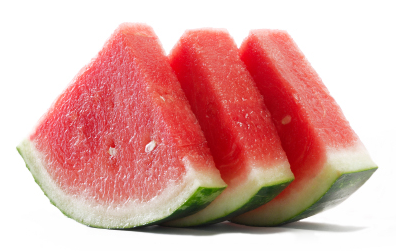 Twenty patients who had more than six herpes outbreaks per year took 22.5 mg zinc sulfate twice a day for a total of four months over the course of a year.
Twenty patients who had more than six herpes outbreaks per year took 22.5 mg zinc sulfate twice a day for a total of four months over the course of a year.
The patients were able to reduce outbreaks to an average of three episodes per year. The outbreaks lasted for less than a week.
In a 2000 study reported in the Journal of Clinical Microbiology, scientists were able to show that zinc salts inactivated the herpes simplex virus.
Out of ten random samples of both HSV- 1 and HSV -2, seven samples were inactivated in vitro by over 98% by treatment of 50 mm zinc gluconate for two hours. Nine were inactivated by over 97% by treatment with zinc lactate.
For herpes simplex virus- 1, 50 mm of either zinc gluconate or zinc lactate was able to kill 100% of the herpes virus in a laboratory setting.
For herpes simplex- 2, 50 mm and 15 mm zinc gluconate caused the virus to inactivate by 30%. 50 mm and 15 mm zinc lactate caused over 92% inactivation of the HSV- 2 virus.
While the scientists in this study were impressed with these results, they stated that human trials for zinc in the treatment of herpes showed inconsistent results, or were not placebo-controlled, randomized studies.
The study concluded that the potential was definitely there for zinc salts to be used for any infectious diseases that are inactivated by zinc.
Foods high in zinc include:
| Zinc-rich Foods |
| Oysters |
| Wheat germ |
| Beef Liver |
| Seeds- sesame and sesame seed butter (tahini), pumpkin, squash, watermelon Dark chocolate and cacao |
| Dark chocolate and cacao |
Selenium, Vitamin E, CoQ10, and methionine
A clinical trial was performed to investigate using the dietary supplements CoQ10, selenium, Vitamin E, and methionine together with the pharmaceutical antiviral drug acyclovir to treat herpes simplex (HSV- 2) and herpes zoster (shingles).
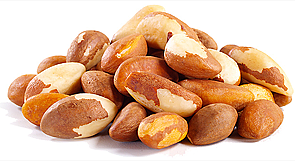 The treatment plan was to administer acyclovir followed by ninety days of nutriceuticals. The control group used acyclovir alone.
The treatment plan was to administer acyclovir followed by ninety days of nutriceuticals. The control group used acyclovir alone.
Healing was much faster in the group that used dietary supplements. There was also a reduction in the number of subsequent outbreaks, as compared to the control group.
Foods high in selenium include:
| Selenium-rich Foods |
| Brazil nuts |
| Beef Liver |
| Fish |
| Sunflower seeds |
| Oat Bran |
| Pork, including bacon |
Foods high in CoQ10 include:
| CoQ10- rich Foods |
| Beef |
| Sardines |
| Eggs Organ meats |
| Organ meats |
Foods high in methionine include:
| Methionine- rich Foods |
| Egg whites Fish Poultry |
| Fish |
| Poultry |
Sources
WebMD.com, “Nutrients for Healthy Skin,” by Jen Uscher
Pubmed.com, “Tasting the rainbow. Good health comes in many colors,” by R. Webb and T. Neithercott. Diabetes Forecast. August 2011; 64(8): 31-34.
Pubmed.gov, “Cervical shedding of herpes simplex virus in human immunodeficiency virus-infected women: effects of hormonal contraception, pregnancy, and vitamin A deficiency,” by S.B. Mostad, et al. Journal of Infectious Diseases. January 2000; 181(1): 58- 63.





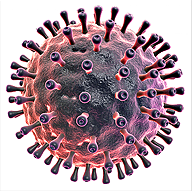 The herpes simplex virus comes in two forms. Herpes simplex virus- 1 is oral herpes, also known as herpes labialis, which means “herpes on the lips.” Herpes simplex virus- 2 is genital herpes, which is found on or around the genitals.
The herpes simplex virus comes in two forms. Herpes simplex virus- 1 is oral herpes, also known as herpes labialis, which means “herpes on the lips.” Herpes simplex virus- 2 is genital herpes, which is found on or around the genitals.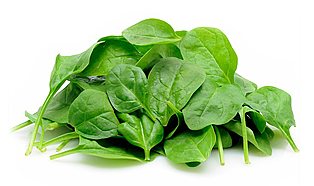 The surprising conclusion of the University of Washington study was that women who used birth
The surprising conclusion of the University of Washington study was that women who used birth 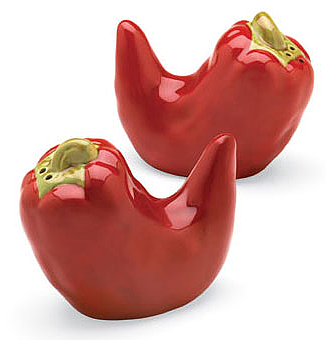 The first study was published in the June 2006 issue of Alternative Medicine Review. Concerns were expressed about the safety and efficacy of the most widely prescribed pharmaceutical anti-viral drug for genital herpes, acyclovir.
The first study was published in the June 2006 issue of Alternative Medicine Review. Concerns were expressed about the safety and efficacy of the most widely prescribed pharmaceutical anti-viral drug for genital herpes, acyclovir.